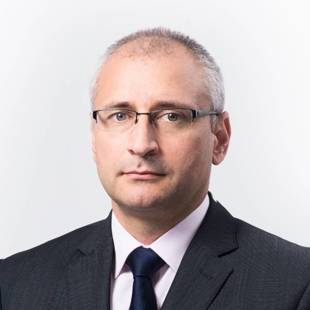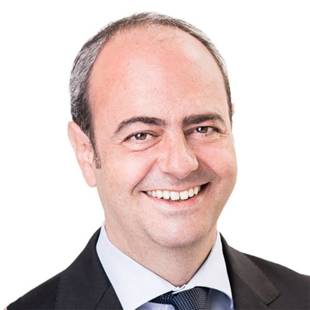5G regulation and law in Bulgaria

- What is the state of 5G deployment in your country, and specifically of the deployment of standalone (SA) 5G networks?
- What is being done to ensure that a wide range of operators and industrial companies, from small to large, have access to frequencies?
-
What public tenders have awarded spectrum licences?
- What were the criteria for awarding each of the tenders?
- What are the conditions of the spectrum licence?
- What is the price and how is it calculated?
- Have there been any issues with the implementation of the 5G projects. Have there been any decisions regarding non-compliance with 5G concession obligations?
- Is there a long-term spectrum plan or announcements for future tenders?
- If 5G specific rules are drafted, what do they say?
- Are 5G network sharing or spectrum sharing agreements in place? Is there any focused 5G network or spectrum sharing regulation?
- What are or will be the rules for granting competitors access to new 5G networks once they are deployed?
- What comments have been made regarding 5G cybersecurity and possible use of Chinese technology, including regulation?
- Is there any project regarding 6G in your jurisdiction?
jurisdiction
- Albania
- Angola
- Australia
- Austria
- Belgium
- Bosnia and Herzegovina
- Brazil
-
Bulgaria
- Canada
- Chile
- China
- Colombia
- Czech Republic
- France
- Germany
- Hong Kong
- Hungary
- India
- Italy
- Japan
- Kenya
- Luxembourg
- Macau SAR
- Malaysia
- Mauritius
- Mexico
- Monaco
- Montenegro
- Morocco
- Mozambique
- Netherlands
- New Zealand
- North Macedonia
- Norway
- Oman
- Peru
- Poland
- Portugal
- Romania
- Serbia
- Singapore
- Slovakia
- Slovenia
- South Africa
- South Korea
- Spain
- Sweden
- Switzerland
- Turkiye
- USA
- Ukraine
- United Arab Emirates
- United Kingdom
1. What is the state of 5G deployment in your country, and specifically of the deployment of standalone (SA) 5G networks?
The largest mobile telecommunication companies have already deployed a national 5G network. A1 Bulgaria has been deploying a 5G core infrastructure. Other operators like Vivacom and Yettel offer extensive 5G coverage, but their deployment are primary non-standalone (NSA) networks, which rely on 4G infrastructure.
As of January 2025, A1 Bulgaria offers 5G services in various regions, including major cities and towns and has been actively expanding its 5G network, which as of 2022 covers the majority of settlements with population 3,000 or more. A1’s 4G network of A1 covers over 99,4 % of the country’s population.
2. What is being done to ensure that a wide range of operators and industrial companies, from small to large, have access to frequencies?
Bands available for 5G and primarily licensed to major operators can support private networks, subject to licensing terms. The Communications Regulation Commission (CRC) also facilitates licensing for specific industrial or enterprise use cases, including smart city initiatives. Industrial entities and airspace-using parties can request spectrum for specialized use under leasing agreements or shared usage agreements, subject to availability, spectrum allocations and the applicable legal framework.
3. What public tenders have awarded spectrum licences?
3.1 What were the criteria for awarding each of the tenders?
The main criteria are determined by the CRC and focus on a transparent, competitive process that aims to balance technical, economic, and social priorities. As such, the criteria include readiness to deploy networks efficiently and effectively, technical and coverage requirements, economic criteria such as licensing fees and supporting costs.
3.2 What are the conditions of the spectrum licence?
The main conditions include spectrum allocation – frequency bands allocated to major mobile telecommunications companies, participation in an auction process and payment of license fees as well as operational requirements, including specific deployment timelines.
In April 2021, the CRC awarded 20-year licenses for the 3.6 GHz band to facilitate the deployment of 5G networks by A1 Bulgaria, Vivacom, and Yettel Bulgaria, with each operator securing 100 MHz of spectrum.
In December 2023, the CRC also assigned the 700 MHz and 800 MHz bands to the same three operators ands each license in these bands is valid for 15 years. The 700 MHz band is recognized as a pioneer band for 5G due to its favourable propagation characteristics.
3.3 What is the price and how is it calculated?
Bidders were selected through a competitive auction, where the total payment from the licenses amounted to approximately BGN 13.4m. (approx. EUR 6.8 m - USD 7m.)
3.4 Have there been any issues with the implementation of the 5G projects. Have there been any decisions regarding non-compliance with 5G concession obligations?
The roll-out of 5G in Bulgaria has faced some challenges, including legal disputes in connection with the CRC’s decision to allocate 5G licenses directly to three major telecom operators without a competitive auction, administrative and regulatory challenges related to cumbersome legal regulations, such as constrictions on network infrastructure and health and safety regulations.
4. Is there a long-term spectrum plan or announcements for future tenders?
Although operators continue to advocate for releasing new spectrum to accommodate growing demand, Bulgaria does not currently have a publicly announced long-term plan specific to future 5G tenders. The CRC has expressed the need for coordinated policy and regulatory consistency to ensure further investments in 5G infrastructure. Future developments are likely to align with European Union objectives including harmonization of spectrum usage and technological advancements.
5. If 5G specific rules are drafted, what do they say?
Specific rules regarding 5G include rules around spectrum allocation, deployment requirements, network security, health and safety standards, and other elements.
6. Are 5G network sharing or spectrum sharing agreements in place? Is there any focused 5G network or spectrum sharing regulation?
The CRC allows mobile network operators to engage in both passive and active infrastructure sharing, which can include spectrum sharing, provided such arrangements comply with competition and non-discrimination rules. There is no specific, focused regulation solely governing 5G network or spectrum sharing. Currently, there are no 5G network sharing agreements in place.
7. What are or will be the rules for granting competitors access to new 5G networks once they are deployed?
Bulgaria currently implements access rules for 5G networks under general competition and infrastructure-sharing frameworks, with no 5G-specific rules for competitor access. Bulgaria aligns with the European Electronic Communications Code, which included a broad connectivity goal. Looking ahead, this suggests that any specific future rules might be focused on ensuring both investment incentives and open market competition.
8. What comments have been made regarding 5G cybersecurity and possible use of Chinese technology, including regulation?
Bulgaria has established cybersecurity measures and aligned itself with international initiatives to ensure 5G network development. Bulgaria has adopted rules that require telecommunications operators to conduct risk assessments, establish robust security protocols, and audit their system in the event of security incidents. The country also joined the U.S. Clean Network initiative, aimed at safeguarding telecommunications networks from potential security threats posed by untrusted vendors, particularly Chinese companies. Although there are no explicit bans on Chinese companies, participation in the Clean Network initiative suggests a preference for using equipment from trusted suppliers.
9. Is there any project regarding 6G in your jurisdiction?
Currently, there are no publicly recognised specific 6G projects in Bulgaria. However, Bulgaria is involved in European-level projects and collaborations aimed at researching and developing future 6G technologies, including Hera-X and Empower-6G.






